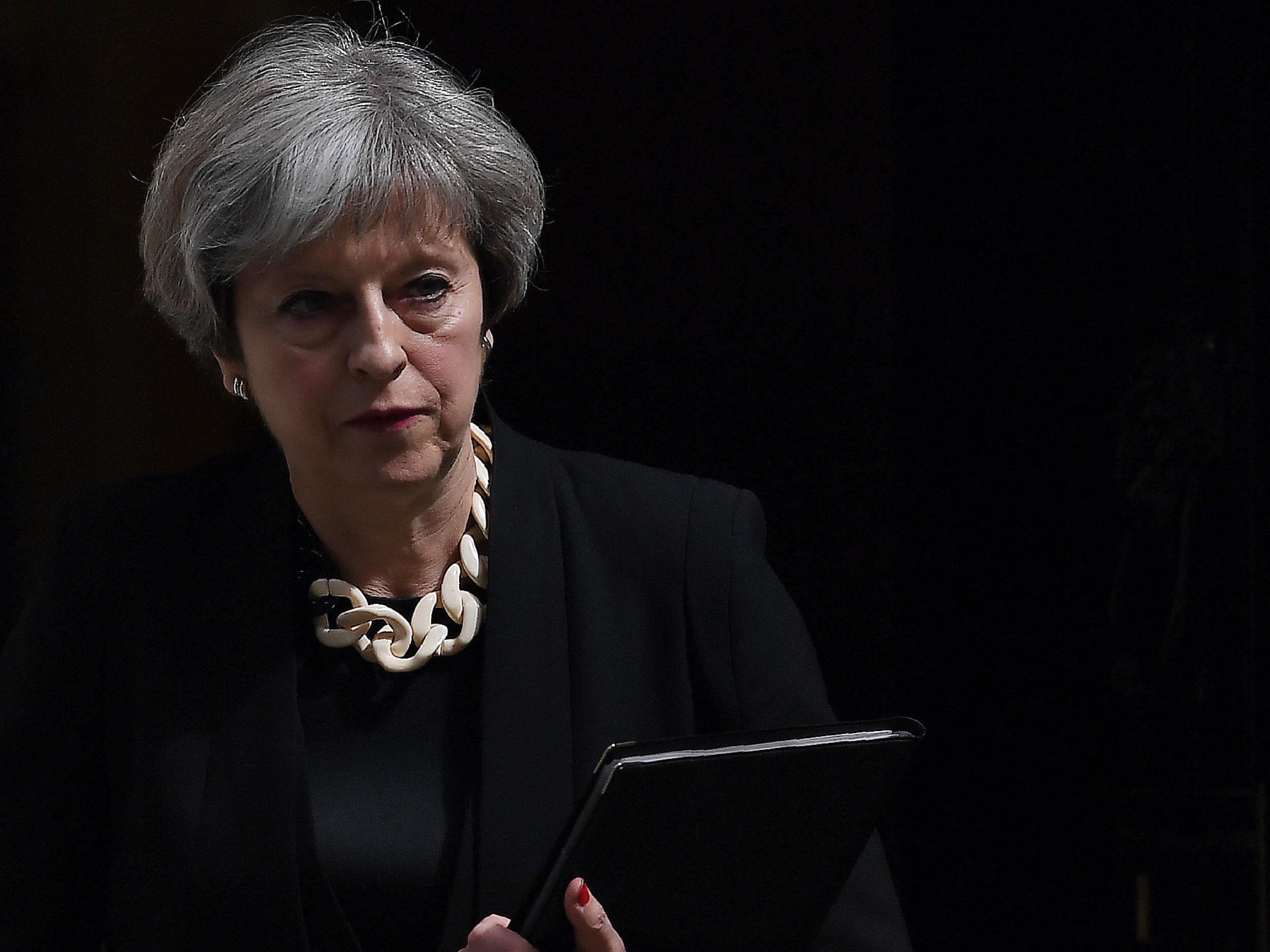Theresa May is cynically seeking scapegoats with her attempt to pin the blame for radicalisation on Silicon Valley
The former Home Secretary should look closer to home

Your support helps us to tell the story
From reproductive rights to climate change to Big Tech, The Independent is on the ground when the story is developing. Whether it's investigating the financials of Elon Musk's pro-Trump PAC or producing our latest documentary, 'The A Word', which shines a light on the American women fighting for reproductive rights, we know how important it is to parse out the facts from the messaging.
At such a critical moment in US history, we need reporters on the ground. Your donation allows us to keep sending journalists to speak to both sides of the story.
The Independent is trusted by Americans across the entire political spectrum. And unlike many other quality news outlets, we choose not to lock Americans out of our reporting and analysis with paywalls. We believe quality journalism should be available to everyone, paid for by those who can afford it.
Your support makes all the difference.It’s not hard to see why Silicon Valley’s titans might present a tempting target to a politician in the midst of a crisis.
They’re big, they’re filthy rich, and they’re often terrible at public and customer relations.
Small wonder, then, that Theresa May came out punching over the weekend, accusing the giants of the internet creating a “safe space” for extremist ideologies in the wake of the latest terrorist outrage in London.
Does she have a point? Or is this another example of a politician seeking a handy scapegoat? A politician who, it should be pointed out, spent more than six years at the Home Office, with responsibility for policing and counter extremism strategy, among other things.
There is certainly a debate to be had over the way tech companies have conducted themselves and how they have overseen the services they offer, not least because Facebook, Google and Twitter aren’t simply tech companies. They are media companies that haven’t always appeared terribly keen to live up to the responsibilities that come with that.
Variants on the “we just offer a platform” argument used to be common, and while companies like Facebook and Google say they have been sinking money into tackling some of the nasty stuff uploaded on to their sites – and it’s not just extremism of the Islamist variety that has created problems – slip ups are still occurring.
It wasn’t all that long ago that clients started pulling ads from Google when it emerged that they may have helped to fund extremist right wing content on its YouTube video service.
Then there is the fake news furore that continues to dog Facebook – a real problem when the latter has become, for many, the primary venue for the consumption of news.
Rumours, conspiracy theories and out-and-out lies masquerading as news on people’s Facebook feeds might very well have influenced election results. Not to mention referenda.
So yes, there is a discussion to be had, and it is an important one, best conducted in a sober and thoughtful manner and not as a knee jerk response to an outrage. Good policy rarely results from these.
Perhaps now might be a good time to consider what the experts have been saying of late: people who know what they are talking about and to whom we would do well to listen. People such as Professor Peter Neumann, an expert on terrorism at King’s College. He has pointed out that would-be terrorists have had to change their tactics in recent times as a result of the efforts made by new media companies to crack down on their activities.
This has led, he said, to a shift in their tactics, and a greater use of services that offer end-to-end encryption, such as Telegram.
Then there is what Rob Wainwright, head of Europol, recently had to say. He noted that there are “some (platforms) that simply won’t co-operate with us”.
Big companies with big brands are not always be very smart, or very fast, when it comes to public relations. It is perhaps because modern PR experts are far too keen on primarily satisfying their internal audiences – their bosses – and all too often lack the gumption to tell executives things they might not want to hear.
That said, these companies are still sensitive to how their brands are perceived and to their public images, and, while it might take some time, they do eventually respond. The comments made by Messrs Wainwright and Neumann make it clear that they have been doing so when it come to the problem of Islamist extremism.
Which brings us back to Ms May, that former Home Secretary who looks very much like she is throwing bricks at the tech-media companies from a glass house.
Her counter extremism strategy? It doesn’t look to be working all that well. Then there is the issue of police numbers and budgets. If Facebook and co wanted to make a fight of it, they could always point out that while they are spending more on police work, the Prime Minister of Britain, during her spell in the Home Office, was doing the opposite in real terms.
Politicians have always been regrettably fond of making knee-jerk statements in response to terrorist outrages. They feel they need to show the public that they are doing something, which is understandable if not always very helpful.
But Ms May’s response, and her calls for greater regulation of the internet (and presumably of the companies that ply their trade there) goes a step beyond that. It does indeed look very much like an attempt to find a scapegoat. A depressing and cynical one.
Join our commenting forum
Join thought-provoking conversations, follow other Independent readers and see their replies
Comments